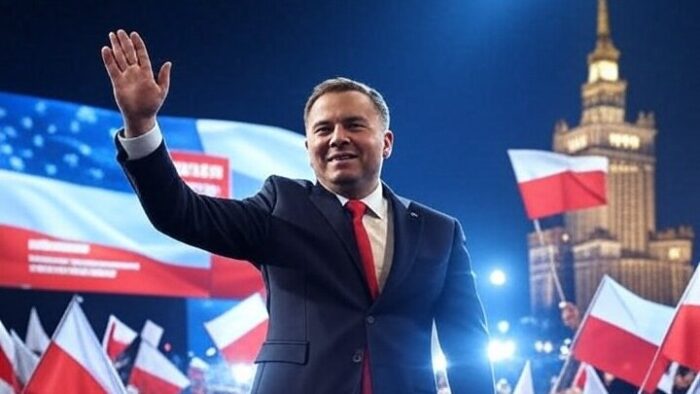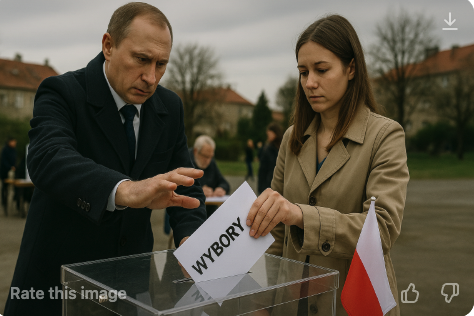Russian interference attempts in the recent Polish presidential election were significantly lower than government warnings suggested during the campaign period. On June 10, 2025, New Eastern Europe reported that, despite repeated alerts from Warsaw about unprecedented Russian disinformation and cyberattacks targeting the presidential election, experts concluded that Moscow’s interference efforts were much less intense than expected. This was due to Poland’s “election umbrella” strategy and lessons from Romania proving effective. The article begins:
On June 1st, Poles elected their new President Karol Nawrocki supported by the national-conservative Law and Justice (PiS) party. During the campaign period leading up to the two election rounds, the ruling coalition repeatedly warned of foreign interference, namely from Russia. The Kremlin has long been known for meddling with elections around the world. In Romania, it conducted disinformation campaigns against NATO and the EU and amplified the voices of pro-Russian candidates.
Key Points
- Digital Affairs Minister Krzysztof Gawkowski claimed Russia’s GRU “doubled its activity against Poland” but post-election analysis found much lower disinformation levels than 2024 European Parliament elections.
- NASK expert Agnieszka Lipińska noted absence of aggressive tactics seen elsewhere, such as social media reach reduction, private correspondence leaks, or Romanian-scale algorithmic manipulation.
- Poland’s diversified social media landscape made it harder for disinformation actors to conduct campaigns compared to Romania’s Facebook and TikTok-dominated environment.
- The OSCE praised Poland’s counter-interference measures while noting no specific new threats were reported between election rounds, validating the “election umbrella” strategy.
The Polish Election & Russian Interference: Poland’s Democratic Resilience
Amid the 2025 Polish presidential election, authorities uncovered what they claimed was a surge of Russian influence operations targeting the vote, including coordinated disinformation campaigns and cyberattacks designed to undermine democratic institutions and polarize the electorate. Investigations identified Kremlin-backed networks and suspected operatives amplifying anti-EU and anti-Ukrainian narratives, while digital forensics revealed the use of fake social media accounts and bot-driven propaganda to sway public opinion.
Despite these efforts, the Kremlin’s information war failed to significantly impact the election outcome, with pro-Russian candidates receiving negligible support and Polish civil society demonstrating strong resistance to foreign manipulation. External research corroborates that Russian and Belarusian operations deployed thousands of fake accounts to spread disinformation, while Poland’s pivotal support for Ukraine made it a prime target for Moscow’s hybrid tactics. In response, the Polish government implemented robust countermeasures, and the European Union introduced new sanctions and information security protocols. The Polish experience underscores both the persistent threat of Russian interference and the effectiveness of coordinated national and European responses in defending democratic processes.
External References:
-
Poland says Russia is trying to interfere in presidential election
-
Illegal Doppelganger Operation: Targeting the Polish Elections
Disclaimer
The Global Influence Operations Report (GIOR) employs AI throughout the posting process, including generating summaries of news items, the introduction, key points, and often the “context” section. We recommend verifying all information before use. Additionally, images are AI-generated and intended solely for illustrative purposes. While they represent the events or individuals discussed, they should not be interpreted as real-world photography.











